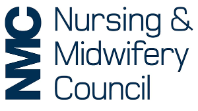MSc - Nursing/Registered Nurse: Mental Health Nursing
Do you want to make a positive difference in the lives of others? If you share our commitment to delivering compassionate care and have a 2:2 or above in any undergraduate degree, our Master’s in Mental Health Nursing is the perfect choice for you to become a mental health nurse in just two years.
Join our supportive community of nursing students and tutors, and study a dynamic course that emphasises hands-on training to prepare you for a fulfilling career in nursing.

Course Overview
A significant proportion of the population will experience difficulties with their mental health during their lifetime. This course will prepare you to support them in their recovery. You will gain practical and cognitive skills and will leave the course as a competent and confident practitioner.
To gain vital real-world experience, you will spend 50% of your time on this mental health nursing course in practical placements such as complex care and dementia, CAMHS (Child and Adolescent Mental Health Services), Crisis Teams and Forensic Mental Health.
As well as this, you'll build confidence and gain a competitive edge by developing your practical skills in simulated 'real life' settings, using our dedicated facilities. These include simulated home spaces, and our brand-new immersive simulation room.
What's more, if you study our MSc in Mental Health Nursing, you might be eligible to receive an NHS grant of at least £5,000 per year of study, which does not need to be repaid. See the Fees and Funding tab below for more information.
You will graduate with a highly sought-after postgraduate degree in nursing, eligible to register with the Nursing and Midwifery Council (NMC), and qualified to enter an NHS role with a Band 5 salary (£28,407-£34,580 per year for 2024-2025).
On this course you will...
- Have access to first-rate placement opportunities through our excellent partner links, developed over our long history of working with the industry.
- Be part of an intimate cohort, benefiting from close tuition from the nursing team who will be on hand to provide personalised support throughout your studies.
- Have access to a range of technology to enhance your learning. These include clinicalskills.net, OCULUS (a virtual reality headset for simulated activities), and Pharmacology and Prescribing Resources.
- Start making a meaningful difference from the moment you begin your course placement, and long into your career as a compassionate and person-centred mental health nurse.
What our students say
-
![Chloe McKeating, MSc Nursing]()
I would like to go home after work and be able to sit at home knowing that I have made a difference to someone’s life whether that be small or large. I am a strong believer that you never stop learning, for me, the MSc is the next step on my journey.
Chloe McKeating, MSc Nursing
-
![Louise Caven, MSc Nursing]()
You are welcomed onto the course with smiles and kindness and nothing is ever too much trouble for the lecturers. The course is amazing, the skills you are taught to be able to go on placement, the equipment which is available for you to be able to learn the skills and the resource in the university to help you enhance your learning skills is something you wouldn’t get at other universities.
Louise Caven, MSc Nursing
Location
Carlisle - Fusehill Street Campus
The Fusehill Street campus has been the setting of life-saving treatments since World War I. Now, it's home to world changers, life-savers, crime fighters, and entrepreneurs with access to high-quality facilities and innovative thinking.
Find out more
Find out more about studying with us
Attend an Open Day at Cumbria
An Open Day is your opportunity to explore one of 5 campuses, meet your lecturers, and find out how the University of Cumbria could become your new home.








